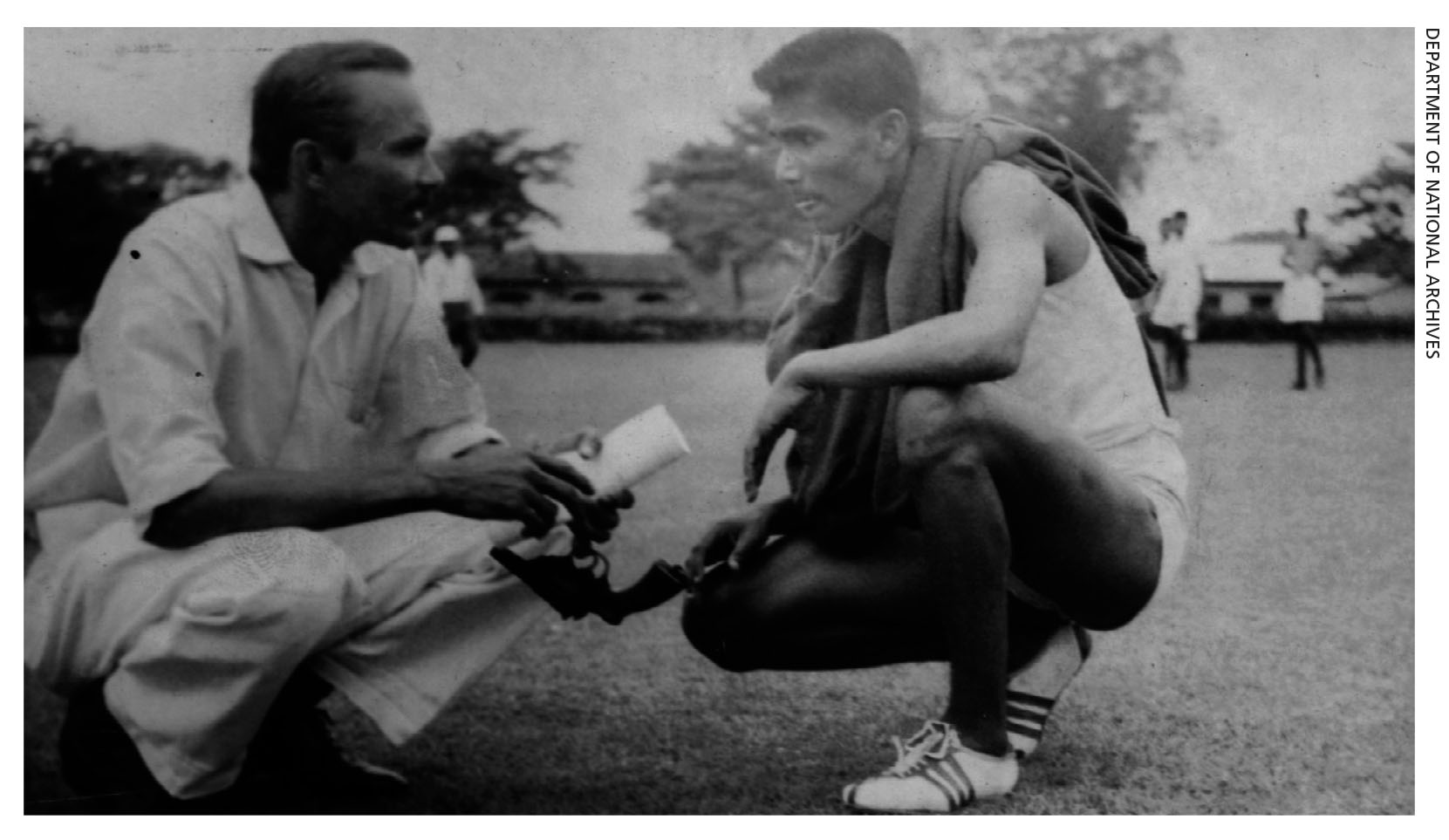1948
Failures are Often the Pillars of Success
Some Olympians run late even in paradise
There is little merit if any in habitually running late… unless of course, it helps eventually to secure one a place on an Olympic podium! That is part of the legend of Deshamanya Duncan White MBE.
The athlete who brought Ceylon glory in its year of independence was prone to leave his home at 7.55 a.m. – a five minute dash away from Trinity College Kandy – when the school’s first bell sounded.
But the route from scarpering to standing proud was long and arduous. White was a natural born athlete – a fact that did not escape his coaches at Trinity – although the youngster excelled at rugby and boxing too. Major Harry Hardy and Philip Buultjens encouraged Duncan to try his hand – well, legs – at the long jump, as well as the 110 yards and 220 yards hurdles.
When he was picked for Trinity’s athletics team at the age of 16, little did Duncan White realise that he’d soon create a schools and national record for the 220 yard sprint, clocking an astounding 23.3 seconds.
Nor in the same year when he captained the upcountry boys’ school athletics team did anyone envisage the well built lad leading Ceylon to Olympian heights a short 12 years later.
At the same meet in 1936, the stripling was part of a Trinity relay team that won the coveted Jefferson Trophy in addition to bagging first place prizes in the 20 feet long jump and 220 yards hurdles.
These wins helped the Kandy college to secure the prestigious Tarbet Trophy as overall athletic champions. For these and other stellar performances, White was awarded the rare privilege of a Trinity Lion.
In-between grit and glory, the athlete set records with a host of gold medals at national, defence services and regional meets.
On 31 July 1948, Duncan White blazed a path to glory at London’s Summer Olympics when he – in fifth lane and leading until the seventh hurdle – clocked in a close second for the 400 metres hurdles event (0.7 seconds behind the US’ Roy Cochran who had trained for four years while the Ceylonese youth prepped for a mere three months!).
His achievement would not be matched by any South Asian athlete for over 50 years.
Duncan White blazed a path to glory at London’s Summer Olympics when he – in fifth lane and leading until the seventh hurdle – clocked in a close second for the 400 metres hurdles event




